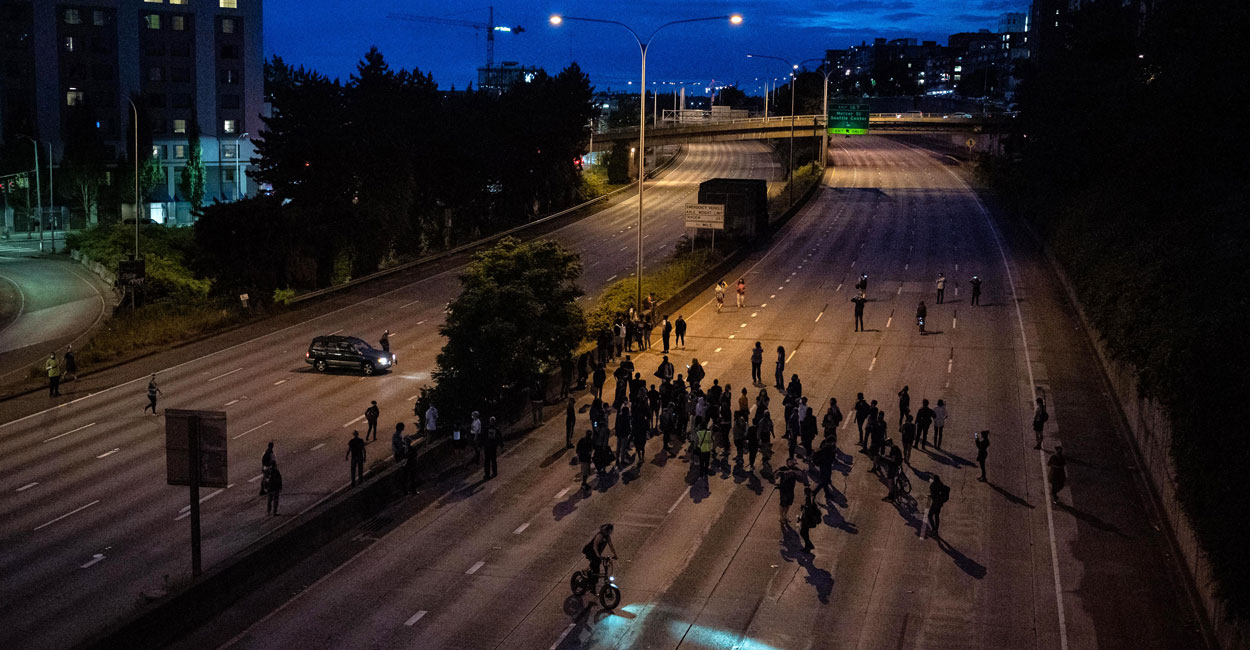A man drove his car last Saturday onto a Seattle freeway that had been closed by a Black Lives Matter crowd.
The driver killed one person and seriously injured another after going the wrong way up a ramp and then around a barricade.
Reports noted that police “don’t believe impairment was a factor.” Over the weekend, news outlets replayed the brutal hit, but there’s one thing you won’t learn from their coverage: The driver was black and his victims were white.
NPR linked this attack to other car-ramming incidents by “right-wing extremists targeting Black Lives Matter protesters.” It quotes a researcher about how these right-wingers were “trying to intimidate the most recent wave of BLM protesters, to stop their movement.”
The driver was a Seattle local named Dawit Kelete. But you’ll find scant mention of the driver’s ethnicity in mainstream media coverage. You might have more easily learned that Kelete was black by going to the Australian Broadcasting Corp.
The American national media also doesn’t note that Kelete’s two victims were white. You can find that out over at the U.K.’s Daily Mail.
Among the few U.S. outlets to mention the race of the driver is Heavy.com. The rest of the news media seemingly would rather just have people assume that a white driver attacked two black protesters. Acknowledging the driver’s and victims’ ethnicity wouldn’t advance their narrative of oppression, so it apparently isn’t newsworthy.
One case doesn’t prove a pattern. It could just be that while the American media knows almost everything about this killer, including his name, age, and where he lives, they couldn’t find information on his race. Possibly the foreign news outlets were just lucky to discover that information.
Of course, the media outlets might honestly not view race as essential to the story. But their selective reporting of it shows that they think race is important when it involves certain races. The problem is that it gives readers a biased perspective, inflaming prejudice and creating stereotypes.
Research conducted by the Crime Prevention Research Center, of which I am president, on all police shootings from 2013 to 2015 found that while local news coverage will often mention the race of the officer and the suspect, the national coverage is much more selective.
While the evidence indicates that black officers are no less likely to shoot suspects than white officers, local news coverage of black officers shooting black suspects gets picked up by the national news in just 9% of cases. By contrast, 38% of the cases in which local news reported on a white officer shooting a black suspect get national coverage.
John R. Lott Jr. – The Daily Signal – July 10, 2020.




